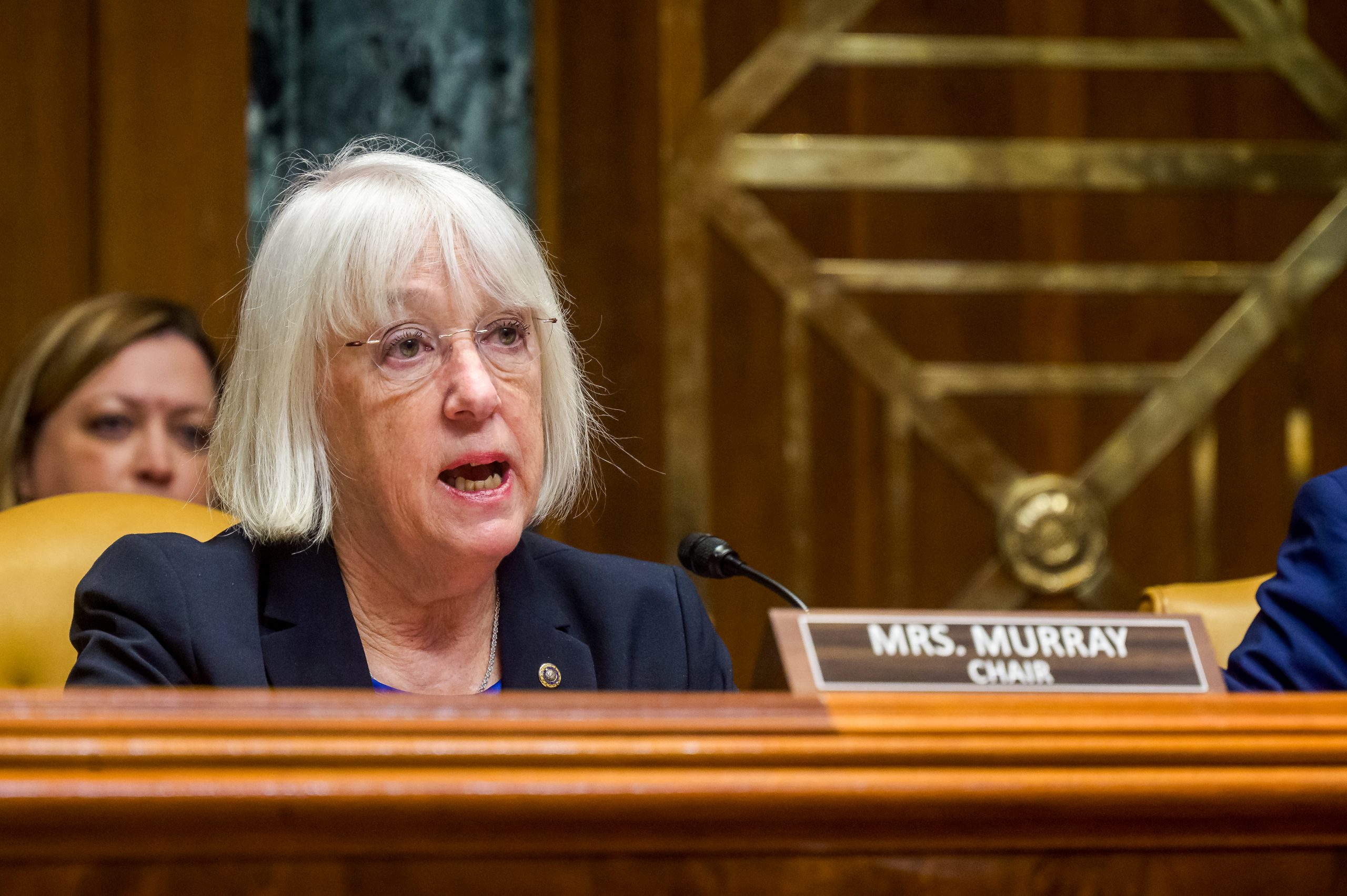Washington DC - U.S. Senator Patty Murray (D-WA), Chair of the Senate Appropriations Committee, led the Washington state delegation in sending a letter to President Biden on Monday in support of Governor Jay Inslee’s request for a Major Disaster Declaration in response to a series of severe winter storms that tore through Washington state at the beginning of this year. The disaster declaration would allow impacted communities to access public assistance and hazard mitigation grants to compensate for damage caused by the storms. Inslee’s request asks for assistance for 16 counties in Washington state: Clallam, Clark, Cowlitz, Ferry, Grays Harbor, Island, Jefferson, King, Klickitat, Lewis, Mason, Okanogan, Pacific, Skagit, Skamania, and Wahkiakum.
Senator Maria Cantwell (D-WA) and Representatives Suzan DelBene (D, WA-01), Rick Larsen (D, WA-02), Marie Gluesenkamp Perez (D, WA-03), Dan Newhouse (R, WA-04), Cathy McMorris Rodgers (R, WA-05), Derek Kilmer (D, WA-06), Pramila Jayapal (D, WA-07), Kim Schrier (D, WA-08), Adam Smith (D, WA-09), and Marilyn Strickland (WA-10) also signed onto the letter.
In early January, communities across Washington state faced record winter storms; the National Weather Service Seattle issued a blizzard warning for western Washington for the first time in over a decade and Southwest Washington was hit with an ice storm and freezing rain. Collectively, these storms left over 100,000 households without power and damaged countless buildings, including schools. Damage from the storms is expected to total $30 million.
“Over a 25-day period in January 2024, a series of extraordinary storm events struck Washington state in rapid succession, resulting in prolonged hazardous conditions across the state,” escribieron los miembros. “Intense windstorms, at times exceeding 60 miles per hour, downed trees and powerlines and exacerbated high tides along coastal communities, already stressed by intense precipitation, to the point of flooding. Widespread blizzard conditions—ice, winds, extreme temperatures, and heavy precipitation—caused significant disruption and resulted in higher than normal snowpack. These conditions continued for weeks, plummeting temperatures to record lows throughout the state and continuing to damage critical infrastructure.”
“The damage caused by these successive storms has been extensive and overwhelming, leaving vital public infrastructure in both urban and rural communities throughout our state in need of significant repairs,” the Members continued. “Downed public utilities caused over 100,000 Washingtonians to go without power, some for several days. Many communities saw significant damage to public infrastructure necessary for local economies, such as boat launches, railroad tracks and popular tourism attractions such as state parks.”
The Members concluded, “While Washington state’s first responders have reacted to these disasters promptly and heroically, the events triggered by these intense winter storms are quickly exhausting the already-strained capacity and resources of our local communities and state agencies. Consequently, we fully support Governor Inslee’s request for a Major Disaster Declaration for these severe winter storms.”
El texto completo de la carta está debajo y AQUÍ.
Querido Señor Presidente:
As members of the Washington state delegation, we write in support of Governor Jay Inslee’s March 22, 2024 request for a Major Disaster Declaration for the state of Washington as a result damages incurred by a series of severe winter storms at the beginning of this year. We urge you to approve the request for assistance as quickly as possible.
Over a 25-day period in January 2024, a series of extraordinary storm events struck Washington state in rapid succession, resulting in prolonged hazardous conditions across the state. Intense windstorms, at times exceeding 60 miles per hour, downed trees and powerlines and exacerbated high tides along coastal communities, already stressed by intense precipitation, to the point of flooding. Widespread blizzard conditions—ice, winds, extreme temperatures, and heavy precipitation—caused significant disruption and resulted in higher than normal snowpack. These conditions continued for weeks, plummeting temperatures to record lows throughout the state and continuing to damage critical infrastructure. Ice buildup and unceasing wind caused additional power outages and major roadways were closed several times due to the continuing hazardous conditions. Even as temperatures began to rise to warmer levels, communities saw excessive runoff from increased precipitation as well as an atmospheric river event. The heavy rain spurred rapid snowmelt and oversaturated soil resulting in flooding, mudslides and landslides.
The damage caused by these successive storms has been extensive and overwhelming, leaving vital public infrastructure in both urban and rural communities throughout our state in need of significant repairs. Downed public utilities caused over 100,000 Washingtonians to go without power, some for several days. Many communities saw significant damage to public infrastructure necessary for local economies, such as boat launches, railroad tracks and popular tourism attractions such as state parks. Several counties sustained widespread damage to office spaces, schools, wastewater treatment and other public facilities.
Notably, these storms are the latest in a series of significant disasters Washington state has experienced over the last several years. Since 2018, the state has had to grapple with eleven major disaster declarations—all in addition to being one of the earliest states hit by the COVID 19 pandemic. While Washington state’s first responders have reacted to these disasters promptly and heroically, the events triggered by these intense winter storms are quickly exhausting the already-strained capacity and resources of our local communities and state agencies.
Consequently, we fully support Governor Inslee’s request for a Major Disaster Declaration for these severe winter storms, including Public Assistance and the Hazard Mitigation Grant Program.
Gracias de antemano por su pronta atención a este importante asunto.
Atentamente,
###


